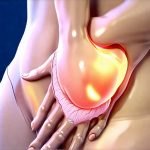Routine-Based Calm for Bladder Signal Clarity
Living with bladder issues – whether frequency, urgency, or discomfort – can feel like constantly second-guessing your body. It’s often not about what is happening to the bladder itself, but how we react to the signals it sends and how those reactions become amplified by anxiety and uncertainty. This creates a frustrating cycle: a perceived need to rush, leading to heightened stress, which in turn intensifies the sensation of needing to go. Many people find themselves hyper-focused on their bladder, constantly scanning for signs, and this intense focus actually makes symptoms worse. The good news is that regaining control isn’t necessarily about fixing the bladder directly; it’s often about retraining your brain and building a sense of calm around your body’s natural functions. This article explores how establishing thoughtful routines can significantly improve bladder signal clarity and reduce associated anxiety, ultimately promoting a more peaceful relationship with your body.
The foundation of this approach lies in understanding that our nervous system plays a critical role in perceiving and interpreting bodily sensations. When we are stressed or anxious, the sympathetic nervous system – responsible for “fight or flight” – kicks into gear. This can lead to increased muscle tension (including in the pelvic floor), heightened sensitivity to internal sensations, and an overall amplification of perceived urgency. Conversely, when we are calm and relaxed, the parasympathetic nervous system – the “rest and digest” system – takes over, allowing for a more balanced and accurate perception of bodily signals. Routine provides predictability, which is inherently calming to the nervous system, reducing that constant state of alert and creating space for clearer signal recognition. It’s about shifting from reactive panic to proactive calm, turning your bladder from an anxiety trigger into simply another part of your body functioning as it should. You can further support this process with a focus on **mindful transitions from work to rest for urinary calm**.
The Power of Scheduled Voiding & Hydration
Scheduled voiding isn’t about restricting fluids or ignoring the urge; it’s about predictability. It involves going to the toilet at regular intervals – for example, every two to three hours – regardless of whether you feel a strong urge. This seemingly simple act can disrupt the cycle of urgency and frequency. By proactively emptying your bladder on a schedule, you reduce the opportunity for the bladder to become overly full and stretched, which can contribute to heightened sensitivity. More importantly, it helps retrain your brain to anticipate voiding times, reducing the constant scanning for signals and minimizing anxiety around potential accidents. It’s about building confidence that your body is cared for and not in crisis.
Alongside scheduled voiding, mindful hydration is crucial. Many people with bladder issues restrict fluids out of fear, which can actually concentrate urine, irritating the bladder lining. Instead, aim to drink consistent amounts of fluid throughout the day – typically 6-8 glasses – focusing on water as your primary beverage. Avoid large gulps and instead sip regularly. The goal isn’t necessarily to drink more, but to distribute fluids evenly and avoid periods of dehydration followed by rapid rehydration. This consistency contributes to a calmer internal environment for your bladder. To help with this, consider reviewing **best morning hydration techniques for bladder ease**.
Scheduled voiding combined with mindful hydration isn’t a quick fix; it requires patience and consistency. It takes time to retrain both the bladder and the nervous system. Expect fluctuations and setbacks, but view them as opportunities to learn and adjust your routine rather than signs of failure. The aim is not to eliminate urges entirely – that’s unrealistic – but to reduce their intensity and frequency, and most importantly, to change your relationship with those sensations.
Building a Morning Calm Routine
A smooth start to the day can set a positive tone for bladder management. Many people experience increased urgency first thing in the morning due to concentrated urine accumulated overnight. Establishing a calm morning routine that incorporates several key elements can be incredibly beneficial:
- Gentle Wake-Up: Avoid jarring alarms. Opt for a gradual wake-up with natural light or a gentle sound.
- Mindful Voiding: As one of your first actions, void your bladder fully but without rushing. Take a few deep breaths before and after. This establishes a sense of control and empties the bladder proactively.
- Hydration & Nourishment: Drink a glass of water with breakfast and choose foods that are gentle on the digestive system. Avoiding caffeine and excessive sugar in the morning can also help minimize bladder irritation.
- Brief Mindfulness Practice: Even five minutes of meditation, deep breathing exercises, or gentle stretching can calm the nervous system and reduce anxiety throughout the day.
This routine doesn’t need to be lengthy or complicated; it simply needs to be consistent and focused on creating a sense of calm and control. The goal is to start the day feeling grounded and prepared, rather than immediately reactive to potential bladder sensations. For additional support in building this habit, explore **building a balanced daily routine for bladder calm**. You can also create a calming evening ritual by exploring **creating calm evenings for bladder recovery**.
Incorporating Movement & Pelvic Floor Awareness
Physical activity plays a vital role in overall health, but specific types of movement can also benefit bladder function. Regular, gentle exercise – such as walking, swimming, or yoga – helps reduce stress, improve circulation, and strengthen pelvic floor muscles. However, high-impact activities or exercises that put excessive pressure on the abdomen should be avoided if they exacerbate symptoms.
Pelvic floor awareness is another key component. The pelvic floor muscles support the bladder and urethra; strengthening these muscles can help improve bladder control and reduce leakage. But it’s crucial to perform pelvic floor exercises correctly. Incorrect technique can actually worsen symptoms. Consider working with a physical therapist specializing in pelvic health to learn proper techniques and ensure you’re engaging the correct muscles.
- Diaphragmatic Breathing: This type of breathing engages the diaphragm, which naturally supports the pelvic floor.
- Gentle Pelvic Tilts: These exercises help improve awareness and coordination of the pelvic floor muscles.
- Avoid Holding Your Breath: Holding your breath increases intra-abdominal pressure and can put stress on the bladder.
To enhance your evening routine, consider **evening silence sessions for calm bladder transitions** to prepare for restful sleep. A consistent bedtime routine is also beneficial; you may find that **designing relaxed transitions for pre-sleep urge calm** helps with overall nighttime comfort.
Evening Wind-Down & Pre-Bedtime Voiding
Just as a calm morning routine is beneficial, so too is a relaxing evening wind-down. Stress accumulated throughout the day can exacerbate bladder symptoms, making it harder to sleep and creating a vicious cycle of anxiety. Prioritize activities that promote relaxation, such as reading, taking a warm bath, listening to calming music, or spending time in nature.
Before bed, establish a consistent voiding routine. Empty your bladder fully, but again, without rushing. Avoid drinking excessive fluids in the hours leading up to bedtime to minimize nighttime awakenings. Creating a peaceful and predictable evening routine signals to your nervous system that it’s time to rest and recover, reducing overall stress levels and promoting better sleep. Good sleep is essential for both physical and mental well-being, and can significantly impact bladder function. Remember, consistency is key; the more you practice these routines, the more natural they will become, and the greater the benefits you’ll experience in terms of bladder signal clarity and overall calm.





















